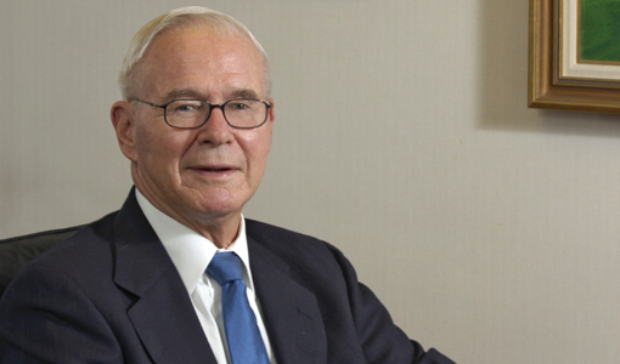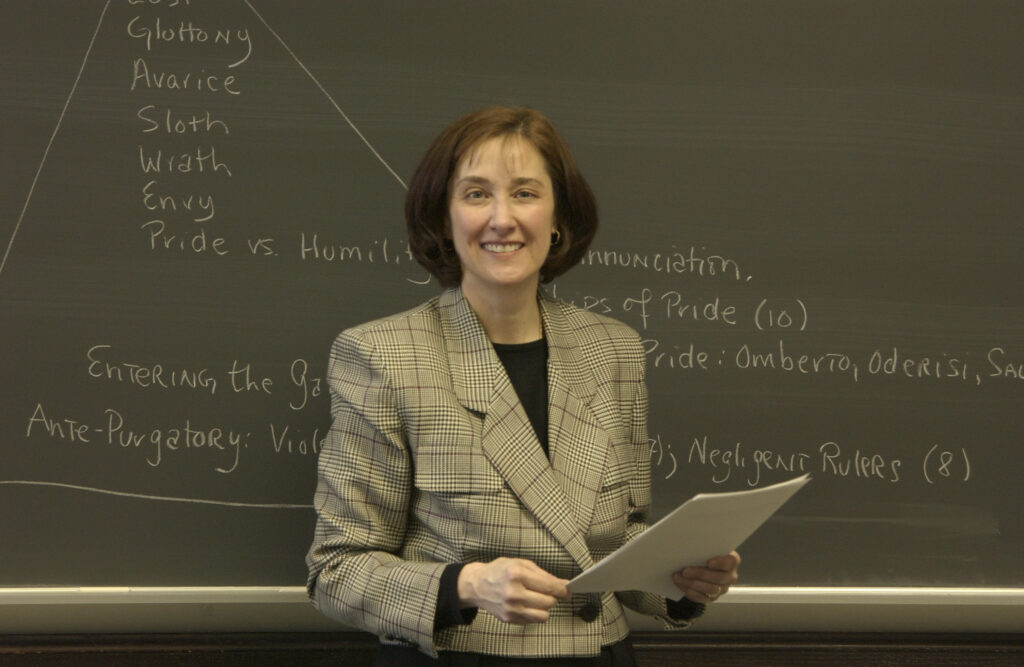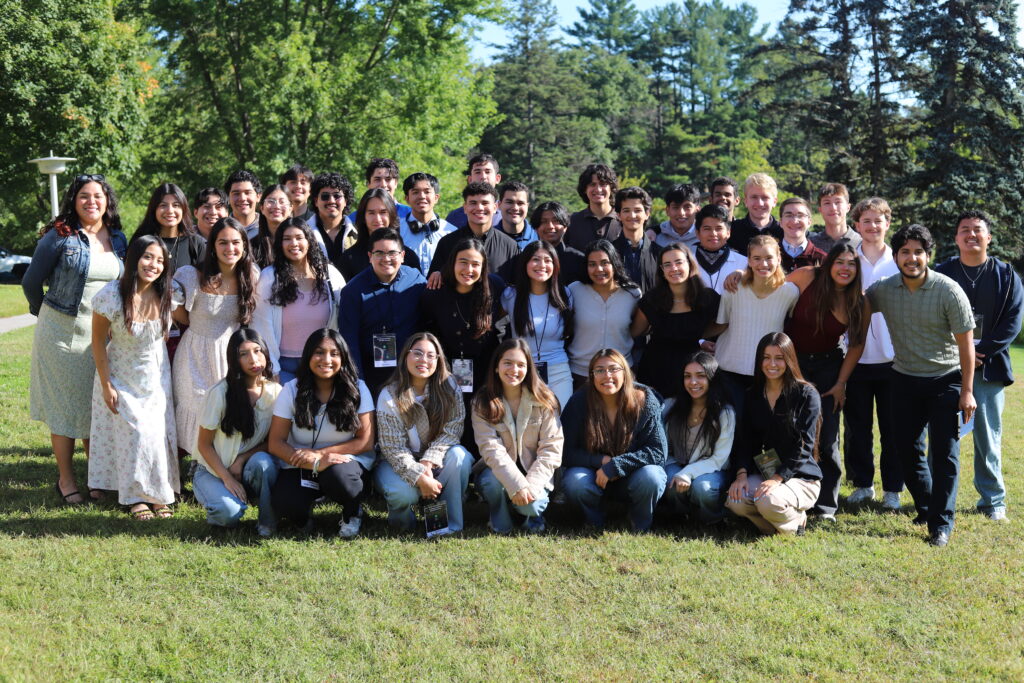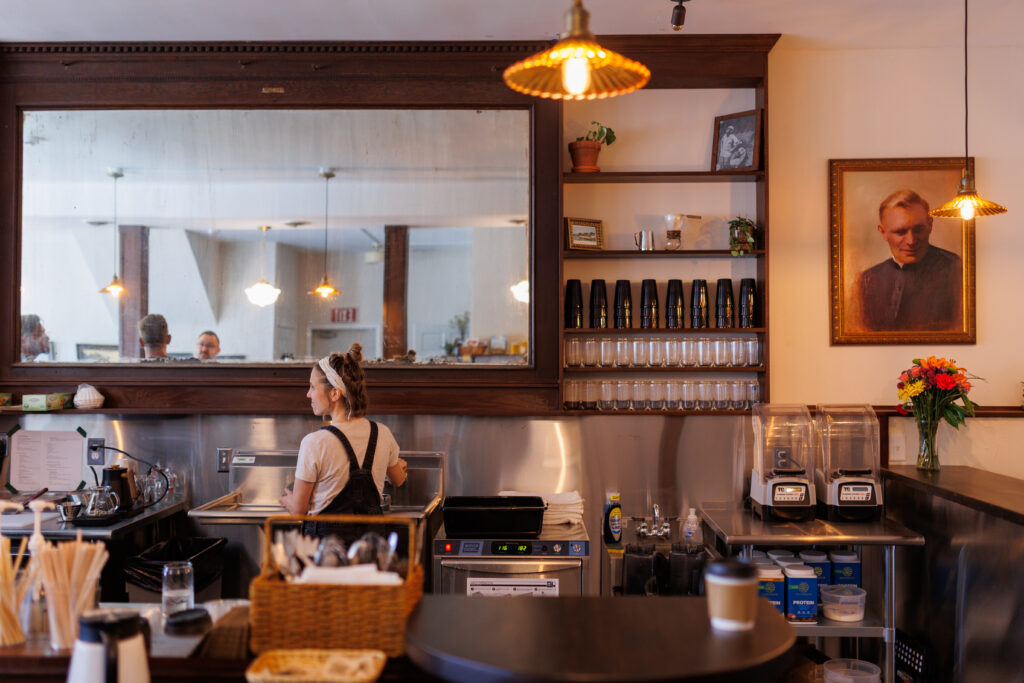A business leader in the Twin Cities, David Koch, St. Thomas class of ’52, has been a tireless and generous donor to the University of St. Thomas and to the Center for Catholic Studies. A member of the St. Thomas Board of Trustees since 1978, in 1996 Koch and his wife, Barbara, were asked by Monsignor Terrence Murphy, then chancellor of the university, if they would be interested in funding an endowed chair in Catholic Studies. In response, the Koches gave St. Thomas $2.5 million to support and foster the Catholic intellectual tradition on campus, the largest portion of which was directed toward creating the Koch Chair in Catholic Studies. Dr. Don Briel holds the Koch Chair position, and David Koch sits on the Center for Catholic Studies Advisory Board.
With the 10th anniversary of the founding of the Center for Catholic Studies approaching, how do you view the growth and development of the Catholic Studies program?
I have been very pleased, surprised and somewhat astounded by the growth of the Catholic Studies program.
To begin, Catholic Studies needed a new facility to call home, and the Sitzmann family was kind enough to modify a building right on the campus and provide an excellent start for faculty, staff and students in the place. Now, of course, we’ve outgrown that space, which is good news, because it shows we’re being successful. In any business, you’ve got to expand.
Then the next issue was the Rome facility, which the Bernardi family was very helpful in getting established. From the feedback we get from the students who go on the Rome program, the Bernardi Residence is one of the key factors in their experience abroad. Students have the chance to study near the Vatican, live in community and really accentuate what their Catholic faith means to them.
I get the nicest notes from students telling me how they enjoy the Catholic Studies program and what it has done for their lives. It’s just been a very rewarding experience for both Barbara and me to get a chance to read about and witness the validity of the whole program. So we’ve been very, very pleased that Monsignor Murphy was right on target. There is clearly a need for this kind of program in the community and in the nation.
You are an expert in business. What do you see as the major challenges that will face businesses in the future, and how might St. Thomas help prepare future leaders to address these challenges?
Every time I get a chance to speak to a St. Thomas MBA class or to a Law School class to share my philosophy on business, I tell them to remember that businesses exist to serve a wide variety of people and not just satisfy the shareholders. I mean, a lot of people benefit when your company does well. And who are these people? Well, they include your employees and customers as well as the beneficiaries of the taxes you pay to the federal government and to the state that you are in. Then you give money to charity because you can see different community projects that need support, and this money is tax deductible for the corporation. The shareholders, of course, also benefit if you do well. So, a wide circle of people are served by the success of a business. But if business leaders are unethical and do improper or illegal things, everyone loses. Today, because of widespread corporate scandals, business leaders are often not trusted.
An education that stresses our moral and ethical obligations is, obviously, critically important. St. Thomas has a chance — whether it is through its Catholic Studies Department, its Law School or its Center of Ethical Business Culture — to make a difference as it educates the business leaders of the future. Our world badly needs such education. Our business culture needs to realize how many people are affected by its actions.
You’ve accomplished so much in your life. What advice can you pass on to students who see you as a role model?
I learned as I went along, and if I can do it anyone can do it. Again I stress — anyone can do it. My father was a plasterer and hadn’t gone past the eighth grade. My mother was a high school graduate. No one in my family had ever gone to college. I started supporting myself when I was just about 11 or 12 years old. First I had a paper route. Then I found a job as a kind of gardener. Later I worked as a plumber pumping out septic tanks, and then at a lumberyard. I leveraged my athletic skills to get an education — I initially went to Notre Dame on a football scholarship then transferred to St. Thomas — and then I leveraged my education to obtain an officer’s commission in the Air Force. My advice is to use such leverage, as I did, from one step to the next. Immerse yourself in the work you are doing and stick with it. Rise to the challenge and you’ll find yourself in leadership positions. And make as many friends as you can along the way.
You expand your whole horizon that way. My point is that there’s always room at the top. Don’t aim low. Students often believe that there are a lot of people who are candidates to run a company. But I guarantee you, after having sat on a lot of advisory boards for different businesses, there really aren’t very many. The boards at least don’t think there are. So there’s room for any person with energy and ideas to make a difference.
You’ve got to be true to yourself. You can’t expect to be a leader if you lie and cheat. It doesn’t work. It will eventually do you in, somehow, someway, and you’ll lose people’s trust. Integrity is the key.
What should Catholic Studies continue to do in the future?
We should just keep doing what we’re doing well, and remember that competition is good. We can learn from other colleges and universities that have Catholic Studies programs, and they can learn from us. We shouldn’t be keeping a light under the bushel. We want other schools to look at St. Thomas and say, this is a reasonable thing to consider doing. We need more and more faith-filled people in this country, and we shouldn’t be shy to publicize what we’re doing and how we’re doing it.
Like in any organization, the most important asset is the people. Catholic Studies succeeds because of its talented faculty and students. We need to continue to recruit good students actively — the best we can get from Catholic high schools and colleges and those who haven’t had the advantage of a Catholic education. All students need to be encouraged to consider at least a minor in Catholic Studies.
Catholic Studies is attractive to so many students because it focuses on teaching the whole person. It nourishes both the intellect and the soul. That’s what we tell our own kids: we’re concerned about your body, your mind, and your soul. Your body and mind are going to give up some day. Your soul, however, is not going to give up. That’s a permanent deal, so make sure you pay attention to your soul as well as your mind and body in your education.





